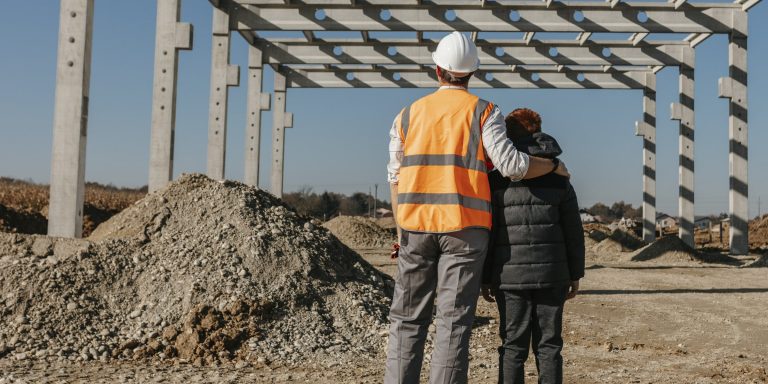Streamlining. Efficiency. Doing more with less. Words and phrases like these will be repeated over and over in the construction industry in the coming years. One way to do this is through connected technology. Looming labor shortages, supply chain disruptions, rising material costs will force construction companies to have near-perfect execution managing people, projects and financials to be profitable. Connected technologies are the vehicles to take construction management into the future.
Connecting HR and Project Teams
According to the Bureau of Labor Statistics, the overall employment of construction workers is projected to grow 7% from 2020 to 2030. Projections show the construction industry will add about 167,800 each year, on average, over the decade. These additional workers will fill the hole left by retiring baby boomers and those who left the industry. This strain on construction workforces means hiring practices need to be as effective as possible. Embracing connected technology allows construction companies to have quick access to employee information and reduces the burden on paper processes and data entry, which can cripple a crew. Software that connects HR to your project teams, like onboarding, can help construction companies reach that near-perfect execution needed to manage their people.
Many construction companies must onboard from the field. Automating that process makes it more efficient because it’s paperless. According to reports, 61,000 new hires will be needed each month in construction for the near future, that’s 1.5 million pages of paper and 61,000 worker hours needed to complete those forms on their first day. Then, consider how much time it takes to manually load that data into third-party systems.
Automated onboarding allows teams to focus on project success, instead of data entry. Using an automated, cloud-based system puts data entry in the employees’ hands. They enter their own personal and tax information directly from the field, eliminating manual entry mistakes. Connecting onboarding to project management software automatically shares your employee demographics, which helps identify which workers and crews are available at a project level.
Connecting Labor to Projects
Connected technologies can also improve how construction companies manage their labor pool, especially when it comes to time tracking. Old, manual time tracking habits include chasing people for time records and adjusting multiple records for employees who punch in late or leave early. These inefficiencies leave the door open for bloated payroll costs as well as the time needed to enter data in multiple third-party systems.
Using an automated time tracking system can improve time tracking accuracy, reduce payroll costs and increase the accuracy of job costing and bids. Connecting time tracking to project management systems gives construction companies a better understanding of just how much labor costs per project. Supervisors can instantly pull people projecting cost codes from the system, giving them better data for budgeting projects.
Connecting HR and Finance Teams
Finance teams are all concerned with the bottom line. Labor costs are a huge part of that bottom line. Currently, two-thirds of construction companies are struggling to fill hourly skilled positions and it’s expensive to keep hiring workers. Turnover can cost up to 33% of an employee’s annual wages. Connected technologies that link HR to your finance department automate the tactical day-to-day, paper and data entry processes so teams can work on the strategic recruiting and employee development necessary to fill your future pipelines.
Not only are back-office efficiencies improved, but a seamless HR process, be it onboarding or time tracking, helps reinforce an employee’s decision to join your organization. Automated processes give a great first impression and make it easy for your employee to work for your organization. Integrations between HR and financial automatically pass along new employee data, pay IDs, compensation rates and transactions, deductions and tax information. All these automations create efficiencies, which frees up time for strategic initiatives, like retention practices and improved company culture.
Connecting Project and Finance Teams
Disconnected financial data can hold a team back. How often do you ask, have my subcontractors been paid? Has the change order been approved? Will we be making or losing money on this project? Where are we at risk? Do we have accurate amounts to invoice our subcontractors? Is this spreadsheet up to date with all the latest changes? Connected technologies bridge the gap between project and finance teams.
Automating, connecting and digitizing cost management practices can result in cost management practices that are more competitive which help deliver projects on time, according to a survey by Deloitte. The benefits of using an integrated system are being able to avoid errors with dual entry with synchronized project cost data and maintaining accurate and secure financial data. Being able to access real-time financial information from your accounting system will allow you to forecast confidently from the field. This transparency allows companies to solve communication issues between accounting and project managers.
Arcoro, Procore and Sage
Arcoro’s HR modules integrate with its partners Procore and Sage to provide construction companies with a complete connected technologies solution.
Arcoro’s onboarding and ExakTime time tracking products talk directly to Procore’s project management software and Sage’s construction financial management solutions, Sage 100 Contractor and Sage 300 CRE. All three of these solutions form a triangle of connected technologies that can make your HR, projects and financial processes seamless, precise and efficient.

Learn more about these solutions by watching the on-demand webinar, Futureproofing Your Business: Harnessing the Power of Your Connected Teams.




